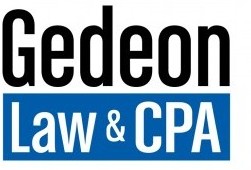A client of mine recently made the move from Canada to sunny Los Angeles.
When I asked him if he left anything behind in Canada, he answered “just the snow”.
Well, as it turns out, my client didn’t just leave the snow behind. He also left his Canadian brokerage account with TD Canada Trust behind. After further discussion, it was determined that my client’s brokerage account was holding Canadian mutual funds.
While the IRS hasn’t found a way to tax Canadians on the snow they’ve left behind, they haven’t made life easy for Canadians who leave behind investments in Canadian mutual funds.
Why? Because Uncle Sam considers foreign mutual funds to be a passive foreign investment company (“PFIC”). When a foreign mutual fund is owned by a US taxpayer (whether directly or indirectly), then US income tax can be charged on gains from these funds at rates of potentially up to 100 per cent. Even better, the IRS requires the taxpayer to deal with complex reporting on Form 8621 to disclose the PFIC.
At this point, you’re probably wondering what’s a PFIC. The tax code defines a PFIC as a foreign corporation where 75% of its gross income from a taxable year is passive income, or the average percentage of assets held during the taxable year produces passive income of at least 50%.
To make a long story short, Canadian mutual fund trusts as well as mutual fund corporations fall under this definition. There is, however, no issue with a PFIC if the Canadian mutual fund is held by a RRSP and the proper IRS elections are made.
After my client’s head stopped spinning, he asked what the US taxes consequences are of holding a PFIC.
Keeping in mind that Form 8621 was designed to target foreign mutual funds that were deferring income earned by US taxpayers from U.S. taxation, the IRS came up with three alternative taxing regimes to include income from a PFIC as taxable income.
Since these three methods are complicated, we’ll spare you the details. But there are a few things that make taxation of a PFIC special. First, if you buy a Canadian mutual fund unit and sell it in the same year at a gain, then the gain is treated as ordinary income and not a capital gain. Second, Form 8621 will need to be filed with the IRS to report certain elections and transactions within the Canadian mutual fund. Third, the IRS assess interest on the deemed deferred tax amount attributed to excess distributions in a PFIC. Lastly, a US taxpayer invested in a PFICs may pay ordinary income tax on the appreciated share value of a PFIC at the close of the tax year, regardless of whether or not capital gains tax rates would normally apply to the income.
Whether you are a U.S citizen, green card holder or an ex-pat temporarily resident in the US for tax purposes, you should consider avoiding investing in Canadian mutual funds and/or divesting such investments currently held.
At Gedeon Law & CPA, we are available to assist US taxpayers with avoiding the adverse tax consequences and dealing with the additional disclosures involved with a PFIC.



